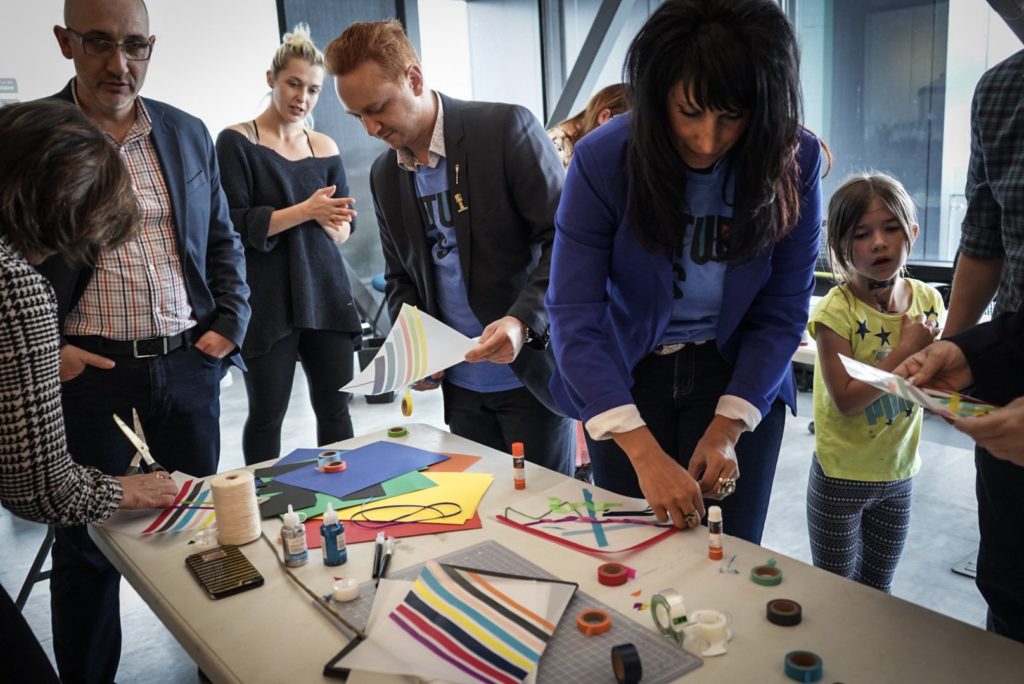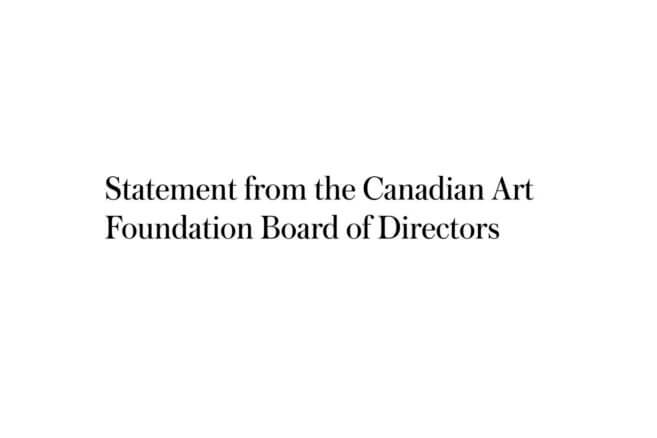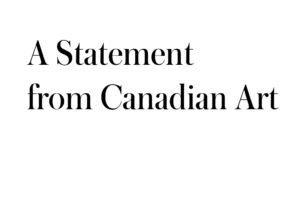Arts and creative industry funding has been restructured in the new Alberta provincial budget, with some trimming for heritage, too. According to the province’s new fiscal plan, the planned shift for Arts and Creative Industries funding in Alberta—from $84 million in 2019–20 to $39 million in 2022–23—is due to a move of $45 million in film-industry tax credits from the Ministry of Culture, Multiculturalism and the Status of Women to the Ministry of Economic Development, Trade and Tourism. Heritage funding is planned be trimmed at a rate of 11 per cent over the next three years—from $52 million in 2019–20 to $46 million in 2022–23. Overall, the Ministry of Culture, Multiculturalism and the Status of Women, will, according to the Fiscal Plan, have a reduction of 27 per cent funding over the next three years: from $218 million this year to $158 million in 2022–23. (Alberta Fiscal Plan)
The Alberta Foundation for the Arts has had a 5 per cent budget reduction, or $1.5 million cut. As the Alberta Foundation for the Arts put it in their own update, “The government has made a commitment to balance the provincial budget by fiscal year 2022–23. We recognize the Government of Alberta for continuing to invest in the AFA this year, during a time when other provincial agencies, boards and commissions have been consolidated into government.” AFA program allocations for 2019–20 and projections for overall AFA funding to 2022–23 were not immediately available. (Alberta Foundation for the Arts)
Professional staff of the Musée d’art contemporain de Montreal—including curators, conservators and others—picketed the museum yesterday. The roughly 30 members of the Syndicat des professionels et professionelles du gouvernement du Québec held the picket on the same day as an opening reception for two major solo shows. They have been without a collective agreement since 2015 and are seeking better wages and job security on a par with other public institutions in Quebec. Watch for more Canadian Art coverage of this picket in the days to come. (Le Devoir, Journal de Montréal, La Presse, Instagram/@prosdumacmontreal)
Kitty Scott has been appointed deputy director and chief curator at the National Gallery of Canada. Scott is currently curator of contemporary art at the Art Gallery of Ontario. Scott fills a vacancy left when Paul Lang departed in March 2018 for a position in his native France. Scott’s appointment is effective January 6, 2020. During a previous tenure as curator of contemporary art at the National Gallery, Scott helped acquire the Louise Bourgeois sculpture Maman (1999) that sits outside the gallery. (PR Newswire)
An immersive virtual-reality lab and residency for Indigenous artists “from across Turtle Island” has launched. The NFB, CFC Media Lab and the Ford Foundation have kicked off the VR lab Open Immersion II. The project follows the success of the inaugural Open Immersion lab in 2016, which focused on artists in Canada and the US. This new iteration will bring together Indigenous artists from across Canada, the United States and Mexico throughout 2020, with participants sharing findings at an ImagineNATIVE Film and Media Arts Festival forum in October 2020. (Canadian Film Centre)
A revitalized NSCAD Lithography Workshop debuts next week. The launch of the new contemporary editions program of the NSCAD Lithography Workshop will take place November 7 in Halifax. Artists Shuvinai Ashoona, Jordan Bennett, Shary Boyle, Brendan Fernandes, Amy Malbeuf, Ed Pien, Derek Sullivan and Ericka Walker are involved in the new edition, having worked with master printer Jill Graham on their projects. The workshop was originally founded in 1969, winning international attention for collaborations with well-known artists such as John Baldessari. But in recent decades, it had been defunct until this new contemporary initiative took hold. (press release)
One of Canada’s few municipal Arts and Health Months is continuing in Edmonton. Edmonton Mayor Don Iveson will again declare November Arts and Health Month in a ceremony this Friday. Partner organizations include the University of Alberta’s Arts & Humanities in Health & Medicine program, iHuman Youth Society; the Nina Haggerty Centre for the Arts; GeriActors; the Canadian Mental Health Association, Edmonton Region; CRIPSiE, the Collaborative Radically Integrated Performers Society in Edmonton; Wellspring Edmonton; St. Stephen’s College; the World Arts Organization; the Arts Mentorship Society of Alberta; Mile Zero Dance Society; and the McMullen Gallery. (press release)
Dan Wright is the new chief financial officer of the Royal Ontario Museum. His appointment is effective November 4, 2019. Previously, Wright was CFO at the Toronto Transit Commission, North America’s third-largest public transit agency, and starting in 2013, he was CFO at ORNGE, Ontario’s provincially funded air ambulance service. (press release)
This post was corrected and clarified on November 5, 2019. The original text suggested that Arts and Creative Industries funding in Alberta had been cut “significantly” at a rate of “50 per cent” over the next three years. In fact, that $45 million shift is due to a change of film tax credit administration from the Ministry of Culture, Multiculturalism and the Status of Women to the Ministry of Economic Development, Trade and Tourism. Information has also been added to this post about a 5 per cent budget reduction to the Alberta Foundation for the Arts.

 Leela Aheer, Alberta's Minister of Culture, Multiculturalism and Status of Women, during a Culture Days event at cSPACE Calgary in late September. Photo: Twitter / @LeelaAheer.
Leela Aheer, Alberta's Minister of Culture, Multiculturalism and Status of Women, during a Culture Days event at cSPACE Calgary in late September. Photo: Twitter / @LeelaAheer.




